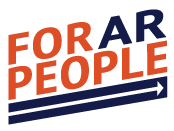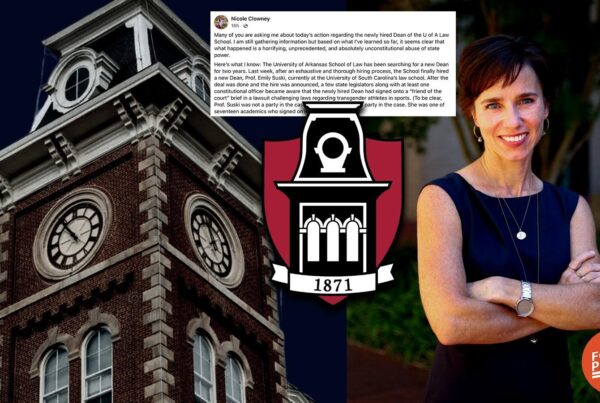Despite what proponents say, Arkansas’s new income tax cuts won’t help working-class folks get ahead.
The last major piece of legislation to come out of the 94th General Assembly was a Sanders-supported income tax cut plan. Proponents of the policy, which will cut the state individual and corporate income tax rates by $124 million a year, say the new law is a game changer for everyday Arkansans, arguing the policy puts more money back into people’s pockets.
As nice as this sounds, the messaging is inaccurate. The nonprofit group Arkansas Advocates for Children and Families says the policy benefits only the wealthiest Arkansans; the 80% of Arkansans with moderate to lower incomes will not see substantial savings from the cuts.
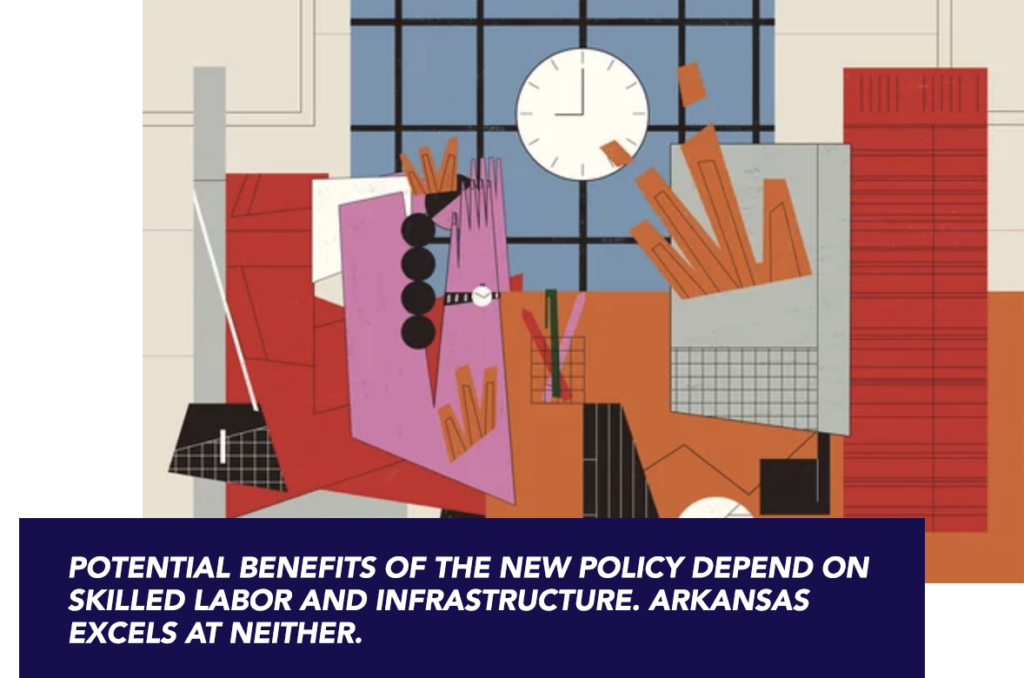
Additionally, supporters argue the cuts will lead to increased investment and job creation, which they say has potential to benefit our working class. Lower taxes could incentivize corporations to repatriate overseas profits, which could be reinvested domestically and stimulate economic growth, proponents say.
But this is not the economic reality here in Arkansas; the new cuts not only aid the wealthy, they also help large, out-of-state corporations. Moreover, income tax cuts do not necessarily lead to trickle-down benefits for working class people.
Instead, the new policy will likely exacerbate income inequality — meaning more state wealth will be concentrated into the hands of a few. The majority of workers in our state will continue to struggle with stagnant wages and rising living costs.
Income tax cut repercussions
In addition to how these cuts endanger state safety nets for hardworking people, let’s take a look at other potential fallouts:
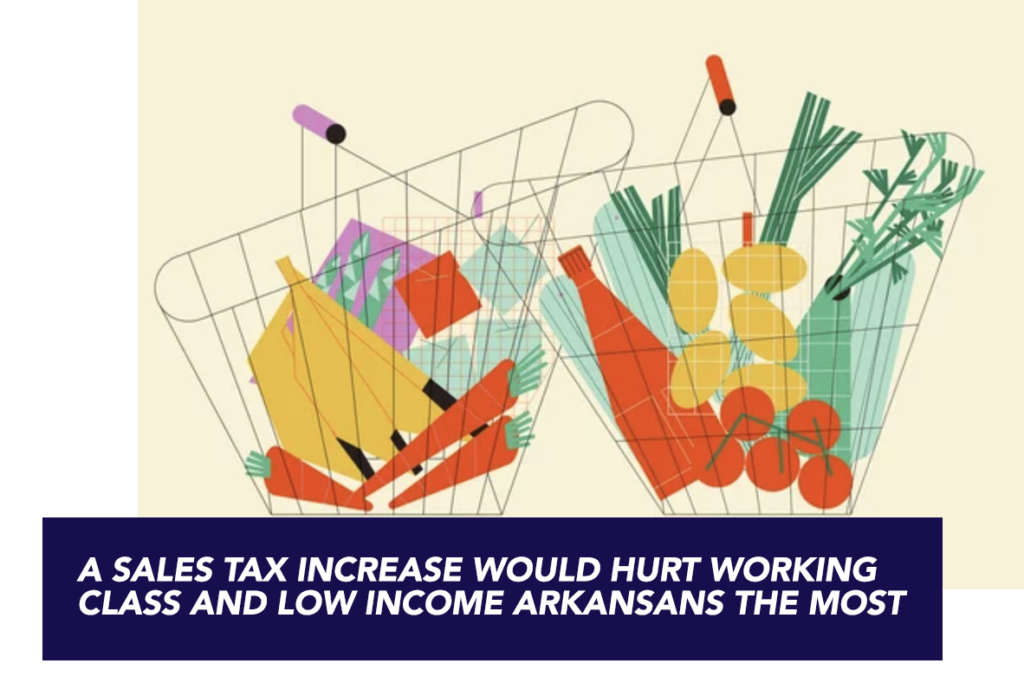
- Reduced state revenue: Eliminating state income tax would result in a loss of revenue for the state government, which could impact funding not only for public services programs but also infrastructure projects.
- Reliance on other revenue sources: If income tax is eliminated, Arkansas may have to get creative and rely on other sources of revenue to fund programs mentioned above. This means increases in sales tax or property tax, which negatively impacts low-income folks. Middle and working class people spend a larger portion of income on consumer goods. Sales + property tax increases would really hurt those of us simply trying to make ends meet.
- Potential economic growth? Not so fast. Proponents argue that eliminating our state income tax will stimulate economic growth for Arkansas, as it could make the state more attractive to businesses and high-income earners who are looking for tax savings. However this effect is not guaranteed; growth has worked in other states that have much larger populations and robust tourism industries, which Arkansas lacks. Potential benefits to the state economy are also contingent on the availability of skilled labor and infrastructure; Arkansas lacks both skilled labor and reliable infrastructure.
- Increased income inequality: Eliminating state income tax could exacerbate income inequality, as higher-income earners would benefit the most from the tax cut while lower-income residents would be left with fewer public resources. Increased income inequality leads to higher mortality rates, poorer education scores, greater social inequality, and lower economic growth over time.
Data-driven solutions that help working people
Unfortunately, our state legislature did little to alleviate economic anxiety for everyday Arkansans this past session. But there are things lawmakers can and should do if they truly believe in helping hardworking people get ahead. Here are a few examples:
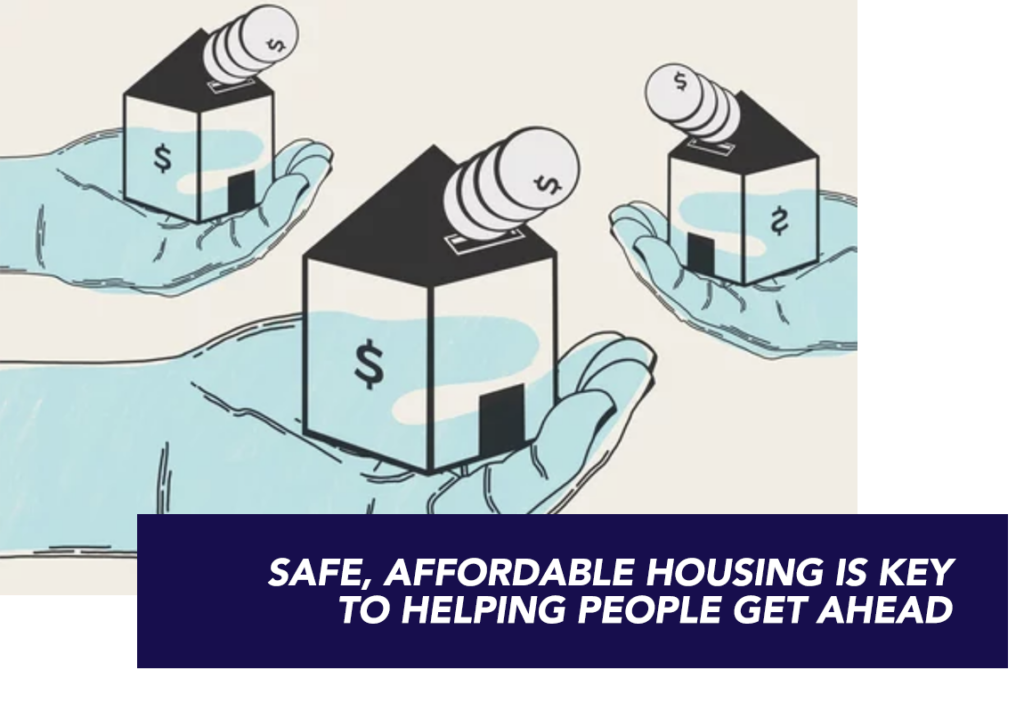
- Increasing the minimum wage: Raising minimum wage helps low-wage and hourly workers earn a decent wage, which in turn reduces reliance on state programs. Arkansas already took this matter into our own hands when we passed a minimum wage increase through a 2018 ballot initiative.
- Strengthening worker protections: Stronger labor laws means fairer wages and better working conditions. The bummer is that Arkansas has abysmal protections for workers and as a right to work state, it’s difficult for unions to generate membership. If Arkansas wants to strengthen worker protections, we need to elect lawmakers interested in helping working people, not big industries and special interests.
- Expanding access to education and training: Access to affordable education and training can help folks develop new skills which can lead to better paying jobs. Arleg has prioritized this through expansion of vo-tech programs and scholarships.
- Providing affordable, accessible healthcare: Access to affordable healthcare helps working people, including rural Arkansans, avoid financial hardship. No one should go broke just because they get sick. Arleg has done a few things to help shore up rural healthcare access but we still have a lot of work to do.
- Providing affordable, safe housing: Affordable housing policies like rent control and subsidies for low-income renters not only helps people get ahead, it also keeps us safer. Unfortunately, Arleg has not prioritized safe, affordable housing. If we want our lawmaker to usher in housing protections, we must elect leaders who will cater to renters and homeowners over landlords and commercial realtors.
People-first policy
Policies that prioritize worker protections, access to education and training, and access to affordable healthcare and housing are proven to help working people get ahead. But right now, our state government is more interested in protecting those at the top than helping the majority of Arkansas make ends meet.
Arkansas are proud, hard working people; we deserve state leaders who will prioritize meaningful tax policy that benefits all Arkansans. For AR People will continue to fight for your right to a fairer, better Arkansas.
